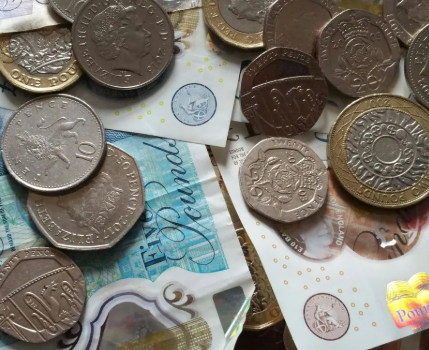
Payday loans often seem like an easy solution when you’re short on cash to cover a bill. The idea of borrowing a small amount against your next paycheck can feel manageable, especially when you’re faced with a looming deadline. However, what starts as a temporary fix can quickly spiral into a cycle of debt that’s difficult to escape. These loans come with high interest rates and fees, making it hard to pay them off in a timely manner. Without realizing it, many people find themselves stuck in a cycle of borrowing more to cover previous loans, creating a financial nightmare.
In Canada, payday loans are among the costliest options available. It’s not unusual for payday loans to come with an annual percentage rate (APR) in the hundreds, if not thousands, of percent. With such high costs, it can feel nearly impossible to break free once you’re caught in the cycle. If you’re struggling with payday loan debt, don’t worry—there are steps you can take to regain control and get back on track.
1. Organize Your Debts
The first step in getting out of payday loan debt is to organize your finances. Make a list of every bill and loan you owe, including payday loans. If you’ve borrowed money through online cash loans, check your email or app for the most recent loan details. You may also want to request a free credit report to ensure you haven’t missed any debts, although not all payday lenders report to the credit bureaus.
Once you’ve accounted for your payday loans, list your other regular debts such as credit cards, utility bills, loans, and any other outstanding payments.
2. Identify Essential Expenses
Now, make a list of your essential monthly expenses. These should be things that are necessary for your survival and well-being, like rent or mortgage payments, utilities, transportation, daycare, groceries, and medications. If you’ve created a budget in the past, now is the time to revisit it and assess what you truly need to spend each month. Once you’ve listed these expenses, add them up to determine the total amount you need for essential living costs.
3. Review All Sources of Income
Payday loans often force you to focus solely on your paychecks. However, many households have additional income sources. Beyond your regular job, you may receive financial help from the government, such as the Canada Child Benefit (CCB), provincial assistance, or support from alimony or child support payments. You might also earn money from a side job, pension payments, or rent from a roommate. These income streams should all be considered when assessing your financial situation.
4. Analyze Your Financial Situation
After organizing your debts and listing your income and essential expenses, you can now analyze your financial situation. Add up all your monthly debt payments and essential expenses. Then, subtract this total from your monthly income. If your expenses exceed your income, don’t panic—we’ll guide you through the next steps. If your income covers your expenses, but only leaves a small amount for debt repayment, you’ll need to adjust your strategy. Either way, knowing where you stand is crucial for planning the next steps.
Your financial picture should balance, meaning your income should at least cover your debts and essential living costs. If it doesn’t, there are options to help you find balance. Consider seeking assistance from a credit counselor, who can guide you through the process of reworking your budget and identifying ways to reduce your debt.
5. Seeking Help with Payday Loans
Sometimes, payday loan companies themselves may offer a temporary solution. They may propose extending your loan repayment period, but be sure to read the fine print. Pay careful attention to the APR and any additional fees. Understand that while this may provide short-term relief, it could lead to even higher costs in the long run. It’s essential to address all of your payday loans at once to escape the debt cycle.
If your credit is in good standing, a debt consolidation loan from a bank or credit union may be a viable option. These loans typically offer lower interest rates, which could help you pay off your payday loans more efficiently. However, using a debt consolidation loan will require a strict budget to avoid accumulating further debt.
6. Consider Credit Counseling Services
When payday loans accumulate, and traditional solutions fail, it may be time to consider working with a non-profit credit counseling agency. A certified credit counselor can help you build a budget that works for your situation, offering realistic options for dealing with your debts. These counselors are experts in helping individuals facing payday loan cycles and can provide a range of debt relief strategies.
Credit counselors have access to a variety of tools and options, such as negotiating with lenders, setting up debt management plans, or exploring other financial relief programs. Their services are free and confidential, so you can feel comfortable discussing your situation without judgment. A credit counselor will walk you through the process and help you understand your options.
7. You Can Overcome Payday Loan Debt
Payday loans can feel like a trap, but with the right support, you can break free. The key is developing a realistic budget and sticking to it, avoiding further debt accumulation. Whether you choose to work with a credit counselor or pursue another option, taking action is the first step toward financial freedom. It may take time, patience, and hard work, but with the right plan, you can escape the payday loan nightmare and look forward to a more stable financial future.









